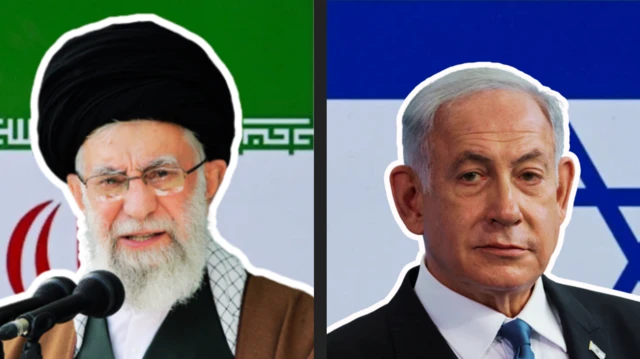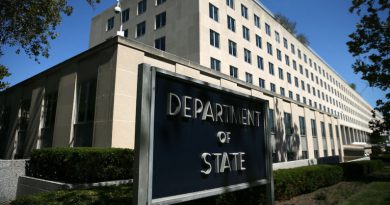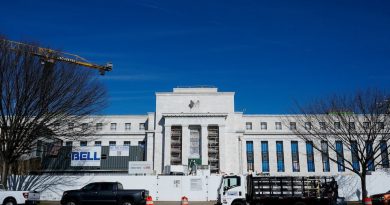Israel Launches Strikes on Iranian Nuclear and Missile Sites, Netanyahu Cites “Imminent Threat”
Israel argues that allowing Iran to complete its nuclear development would not only endanger regional countries but could also pose a threat to global security.
In a significant escalation of tensions in the Middle East, Israel launched targeted airstrikes on Iranian nuclear and missile facilities early Friday morning. The Israeli government described the strikes as a preemptive operation aimed at preventing Iran from acquiring nuclear weapons capabilities. The operation, named “Operation Rising Lion,” marks one of the most direct confrontations between the two regional powers in recent years.
Israeli Prime Minister Benjamin Netanyahu addressed the nation shortly after the strikes, calling them a necessary response to what he termed an “existential threat” posed by Iran’s advancing nuclear program.
“Moments ago, Israel launched a targeted military operation aimed at dismantling the Iranian threat to Israel’s survival,” Netanyahu said. “This operation will continue as long as necessary to eliminate this danger.”
Targeted Strikes on Iranian Nuclear Facilities
According to Israeli officials, the airstrikes focused on key components of Iran’s nuclear infrastructure, particularly the uranium enrichment site in Natanz, which has long been considered central to Iran’s nuclear ambitions. In addition, the strikes reportedly targeted Iranian scientists associated with nuclear weapons development, as well as facilities involved in the production and storage of ballistic missiles.
Israel’s leadership claims Iran has amassed enough highly enriched uranium to manufacture up to nine nuclear warheads and has taken steps toward weaponizing this material in recent months. The Israeli military also stated that ballistic missile development in Iran has accelerated, raising fears that these delivery systems could eventually be equipped with nuclear payloads.
Iranian officials have not issued a detailed public response at the time of reporting. However, Iranian state media has confirmed explosions near Natanz and other military sites, with reports of casualties and material damage. Tehran has vowed to respond at a time and manner of its choosing.
Historical Context and Strategic Calculations
In his address, Prime Minister Netanyahu drew historical parallels between the current situation and the events leading up to World War II, referencing the Holocaust and the international community’s failure to act against Nazi Germany in time.
“Eighty years ago, the Jewish people were victims of genocide. Today, the Jewish state will not allow history to repeat itself in the form of a nuclear holocaust,” he said.
While Netanyahu’s rhetoric was forceful, the broader strategy behind the operation appears to align with longstanding Israeli security doctrine that precludes hostile states from acquiring nuclear weapons. Israel has neither confirmed nor denied possession of nuclear weapons itself, but has consistently opposed Iran’s nuclear program, viewing it as a direct threat.
Regional Security and Wider Implications
Netanyahu also sought to frame the strikes as part of a broader effort to promote regional stability. He highlighted the risks posed to neighboring Arab countries by Iran’s missile and proxy networks, including Hezbollah in Lebanon, Houthis in Yemen, and various militia groups operating in Iraq and Syria.
“In defending ourselves, we also defend others,” he said. “Our Arab neighbors, too, have suffered from Iran’s campaigns of chaos and destruction.”
The Israeli leader pointed to previous confrontations with Iranian-backed militias in the region as efforts to roll back what he called a “ring of fire” aimed at surrounding Israel. In particular, he cited the October 7th attack — an incident involving coordinated assaults by Iranian proxies — as a turning point in Israeli military posture.
Netanyahu claimed that recent Israeli military operations had weakened Iran’s regional influence, resulting in political shifts in Lebanon and Syria. However, analysts warn that the current escalation may provoke a broader conflict involving multiple actors across the Middle East.
Message to Iranian People
Despite the military action, Netanyahu made a point of addressing Iranian citizens directly, distinguishing between the Iranian government and its people.
“Our fight is not with you,” he said. “It is with the brutal regime that has oppressed you for nearly five decades.”
He expressed hope that Iran’s people would one day experience political reform, and said he looked forward to a future in which Iran and Israel could share peaceful relations, emphasizing the ancient cultural ties between the two nations.
Global Reactions and Strategic Concerns
While official reactions from world leaders were still unfolding, diplomatic sources suggest that Israel had informed key allies in advance. The United States, which has long been engaged in efforts to restrain Iran’s nuclear ambitions, has not yet issued a formal statement on the operation.
Netanyahu thanked former U.S. President Donald Trump for what he described as “leadership in confronting Iran’s nuclear weapons program.” He criticized what he called Iran’s failure to meet international norms despite ongoing negotiations and sanctions.
Security experts warn that the strikes could trigger a new phase in the Middle East conflict, particularly if Iran retaliates directly or via its regional proxies. Some analysts also raised concerns about the operation’s impact on global energy markets and nuclear non-proliferation efforts.
Iran’s missile capabilities extend across much of the Middle East and into parts of Europe. Israel argues that allowing Iran to complete its nuclear development would not only endanger regional countries but could also pose a threat to global security.
“Iran has referred to Israel as the ‘small Satan’ and the U.S. as the ‘great Satan,’” Netanyahu said. “The threat they pose is not just to us, but to everyone who values freedom and peace.”
Legal and Strategic Debate
The legality of preemptive strikes remains a contentious issue under international law. While Article 51 of the United Nations Charter recognizes the right to self-defense, the threshold for what constitutes an “imminent” threat is debated by legal scholars. Israel has long maintained that Iran’s nuclear ambitions justify preemptive action under this doctrine.
Critics, however, caution that such operations can exacerbate tensions and undermine diplomatic solutions. Several international organizations have urged both sides to exercise restraint and called for renewed negotiations to prevent further escalation.
Domestic Reaction in Israel
Within Israel, the strikes were met with a mixture of support and apprehension. While many citizens expressed relief at what they see as strong leadership in the face of an existential threat, others voiced concern about possible retaliation and the long-term consequences of further military escalation.
Security has been heightened nationwide, and civil defense protocols were activated in major cities, including Tel Aviv and Jerusalem. Schools and public institutions were instructed to remain on alert for any developments in the coming days.
As the situation develops, much depends on Iran’s response and the international community’s reaction to Israel’s move. Some analysts believe the operation could serve as a catalyst for renewed global focus on Iran’s nuclear program, while others fear it may lead to an uncontrollable spiral of retaliatory violence.
In concluding his address, Netanyahu said Israel had acted out of necessity, not aggression.
“The hardest decision any leader faces is to stop a threat before it fully materializes,” he said. “We have done so today, not only for our own survival, but for the stability of the world we all share.”



